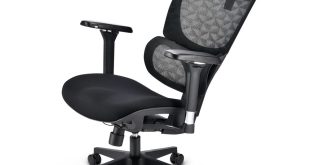It doesn’t matter how good any of the synthetic suites are, the real meat of the testing has to be under absolute real world conditions. This proves difficult as to record results we have to narrow down fluctuation. Therefore while we would say these are the most useful results to get from this review, there is always going to be a slight margin for error – its not absolutely scientific.
Firstly we installed a fresh copy of Windows 7 Ultimate 64bit Edition onto each of the drives and performed a clean update from Microsoft with all patches and security fixes. We then install a basic suite of software, such as Office, Firefox and Adobe Design, then we install AVG free antivirus. We used a digital watch for this startup and repeated the test five times for each drive – once we had these five results we averaged the results and took that for the final figure.
The Samsung 830 Series 512GB scores 23 seconds, only a second behind the leading Sandforce 2281 powered drives, not really noticeable in the ‘real world'.
Very strong overall performance, scoring 19 seconds, almost keeping up with the leading Sandforce 2281 drives.
 KitGuru KitGuru.net – Tech News | Hardware News | Hardware Reviews | IOS | Mobile | Gaming | Graphics Cards
KitGuru KitGuru.net – Tech News | Hardware News | Hardware Reviews | IOS | Mobile | Gaming | Graphics Cards





A complete solution from Samsung, very interesting indeed. strange to see a non sandforce drive today.
Very nice indeed, I like it. Not this size however, 256mb might be good for an upgrade in 2012.
Nice drive, but I still think Sanforce 2281 has the edge in all the performance benchmarking. its a tough one to beat. still good to see competition, drives down prices, right?
Samsung will have a really hard time selling these to consumers, they work well in OEM market, for Dell machines etc, but enthusiasts are slightly more educated and want Sandforce. thats my views on it anyway, based on forums like anandtech and hardocp.
The price isn’t bad,and uncompressed performance is very strong as the test have shown. the issue is that the more affordable drives are slower and Samsung dont seem to be sending samples to review sites (64GB model for instance looks slow as molasses in write test).
I think Samsung are better than any other maker, for the warranty and professionalism of the company. sandforce drives have failed MANY times, remember that.
1st fact: today there is no one type of SATA SSD dominate the market to replace HDD.
2nd fact: current SATA SSD maker more focus on speed rather than reliability, it make many people afraid to invest their money on SSD.
3rd fact: only Intel and Samsung whose making NAND flash, Controller, and Firmware in an integrated way to assure reliability.
4rd fact: Intel has shown weakness in SSD reliability (remember ‘Bad Context 13X Error’), only Samsung who still holding record for reliability almost perfectly.
This is just from my point of view.